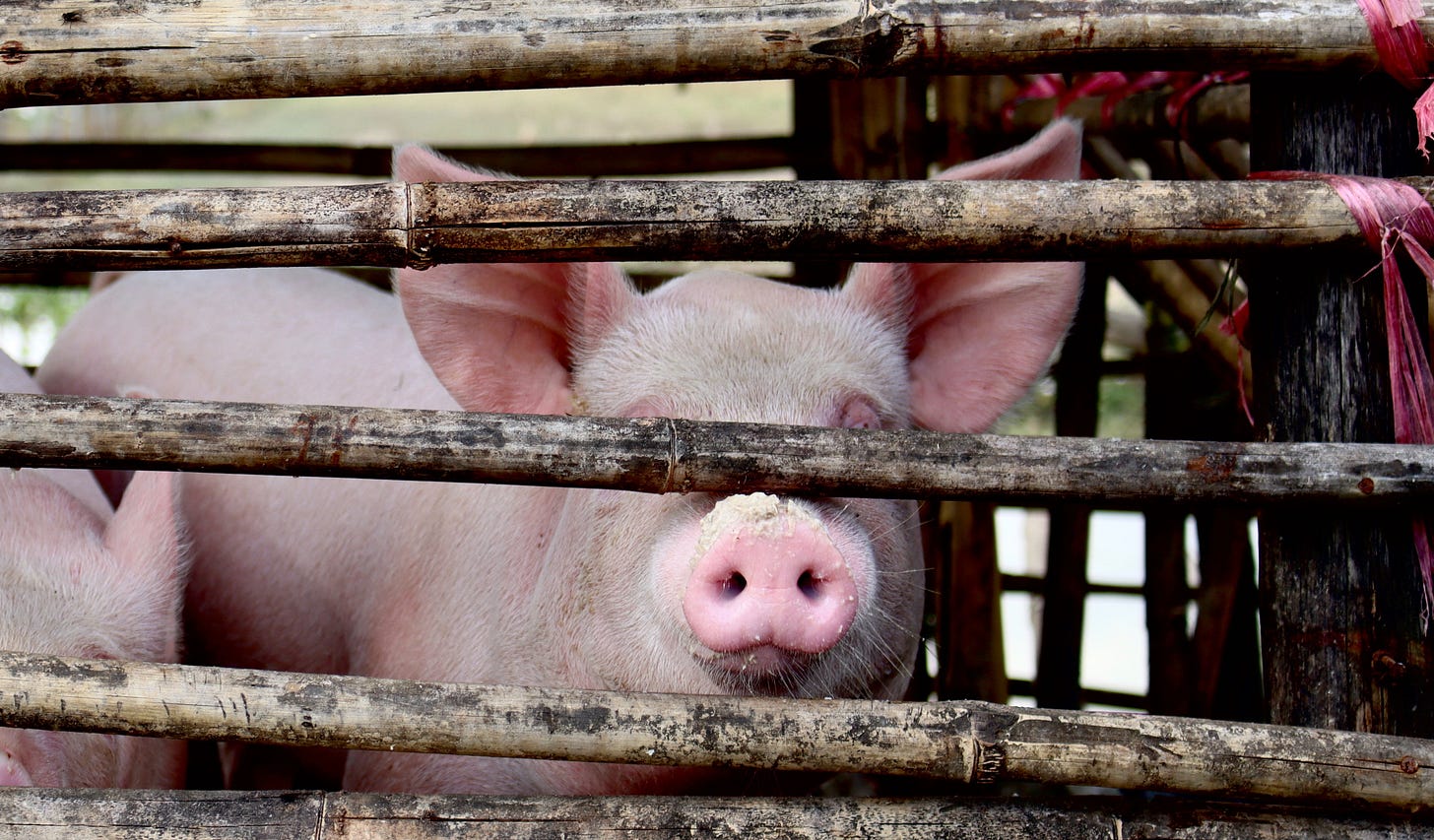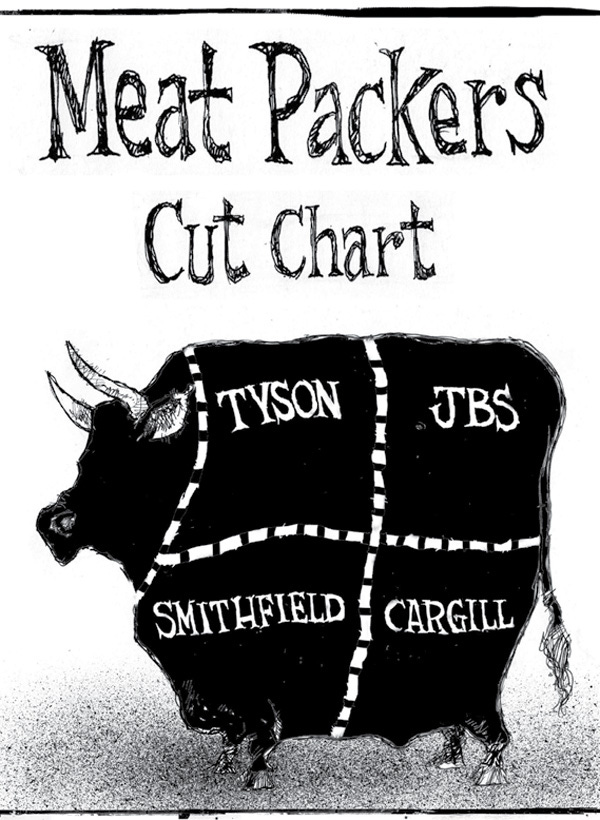THE LOWDOWN: The ‘free’ market: hogtied, shot, & drowned
Let's consider some of the developments shaping our food future, particularly that monster at the door (which the corporate ag and political establishments want us to pretend is not there): Monopoly.

I've never been a farmer, but I've learned quite a bit about being one from the many I've known. Start with High and Lillie, my parents, both of whom were raised on hardscrabble Texas farms and had a trove of stories about the ups and downs of that experience. Also, during my growing-up years in Denison, Texas, I had extended stays on the nearby farm of my Aunt Eula and Uncle Ernest, chipping in on the cotton picking, corn hoeing, and chicken tending. Of course, none of these connections give me claim to being a Son of the Soil, but I was able through my time with these relatives to soak awhile in the unique satisfaction that farm life can bring.
I also got a sense from their kitchen- table talk of how farming can be a mighty hard row to hoe, for there's a constant threat that some combination of bad weather, bankers, bugs, commodity brokers, and politicians will hit you from out of nowhere, plucking your profits and threatening your family's livelihood. A Woody Guthrie song expresses the lament of many a hard luck farmer:
Drought got my crops and Mr. Banker's at my door
And I ain't got no home in this world anymore.
Yet, against all odds, family farmers all across our land persevere, in part because they tend to be "optimistic fatalists" (meaning they understand what's gonna happen is gonna happen, but even if it's bad now, they dare to believe next year might be better). And they buffer it all with an indomitable sense of humor. In my days as Texas Agriculture Commissioner, and in the many years since that I've continued as a family farm advocate, they've always had another line or joke to try out on me:
A reporter asked a farmer what her family would do if they won a million dollars in the lottery: "Well, I guess we'd just keep farming 'til the money ran out."
During the 1970s and '80s, when global grain traders had busted farm prices, I was asked at an Iowa ag protest if I knew the difference between a farmer and a pigeon. I did not. "A pigeon can still make a deposit on a John Deere," the farmer said, chortling at the bitter truth of it.
"You can make a small fortune in agriculture," a Georgia farmer drawled on my radio talk show in 2000, "but the problem is you have to start with a large fortune."
Dinner Plate Distortions
In this winter holiday season of good eats--from pumpkin everything to good-luck black-eyed peas--it's fitting for us to focus a Lowdown "State-of-the-Plate" issue on the situation of these hardy producers ... and on the dicey food future they (and we) face. The media and politicians have rightly been bemoaning the painful inflationary surges in the price of eggs, milk, meat, veggies, and other foodstuffs. Yet, little attention has been given to the curious fact that those who actually produce our food are mired in a disastrous, multi-year decline in the money they're paid for their commodities. That farm prices can fall while consumer prices rise is an anti-competitive distortion so severe that farmers are now only getting 14 cents of each dollar we consumers spend for food! This disparity has bankrupted thousands of farm families and left hundreds of thousands more on the brink of broke.
What's going on? Where's it headed? Do we care? What to do?
Let's consider some of the developments shaping our food future, particularly that monster at the door (which the corporate ag and political establishments want us to pretend is not there): Monopoly.
Keep reading with a 7-day free trial
Subscribe to Jim Hightower's Lowdown to keep reading this post and get 7 days of free access to the full post archives.



